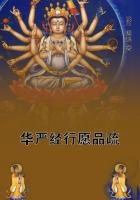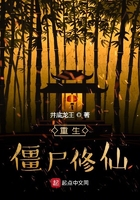This result had not been gained without struggle. The fact could be read in the settled lines of Senor Johnson's face, and the great calm of his grey eye. Indian days drove him often to the shelter of the loopholed adobe ranch house, there to await the soldiers from the Fort, in plain sight thirty miles away on the slope that led to the foot of the Chiricahuas. He lost cattle and some men, but the profits were great, and in time Cochise, Geronimo, and the lesser lights had flickered out in the winds of destiny. The sheep terror merely threatened, for it was soon discovered that with the feed of Soda Springs Valley grew a burr that annoyed the flocks beyond reason, so the bleating scourge swept by forty miles away. Cattle rustling so near the Mexican line was an easy matter. For a time Senor Johnson commanded an armed band. He was lord of the high, the low, and the middle justice. He violated international ethics, and for the laws of nations he substituted his own. One by one he annihilated the thieves of cattle, sometimes in open fight, but oftener by surprise and deliberate massacre. The country was delivered.
And then, with indefatigable energy, Senor Johnson became a skilled detective. Alone, or with Parker, his foreman, he rode the country through, gathering evidence. When the evidence was unassailable he brought offenders to book. The rebranding through a wet blanket he knew and could prove; the ear-marking of an unbranded calf until it could be weaned he understood; the paring of hoofs to prevent travelling he could tell as far as he could see; the crafty alteration of similar brands--as when a Mexican changed Johnson's Lazy Y to a Dumb-bell Bar--he saw through at a glance. In short, the hundred and one petty tricks of the sneak-thief he ferreted out, in danger of his life. Then he sent to Phoenix for a Ranger--and that was the last of the Dumb-bell Bar brand, or the Three Link Bar brand, or the Hour Glass Brand, or a half dozen others. The Soda Springs Valley acquired a reputation for good order.
Senor Johnson at this stage of his career found himself dropping into a routine. In March began the spring branding, then the corralling and breaking of the wild horses, the summer range-riding, the great fall round-up, the shipping of cattle, and the riding of the winter range. This happened over and over again.
You and I would not have suffered from ennui. The roping and throwing and branding, the wild swing and dash of handling stock, the mad races to head the mustangs, the fierce combats to subdue these raging wild beasts to the saddle, the spectacle of the round-up with its brutish multitudes and its graceful riders, the dust and monotony and excitement and glory of the Trail, and especially the hundreds of incidental and gratuitous adventures of bears and antelope, of thirst and heat, of the joy of taking care of one's self--all these would have filled our days with the glittering, changing throng of the unusual.
But to Senor Johnson it had become an old story. After the days of construction the days of accomplishment seemed to him lean.
His men did the work and reaped the excitement. Senor Johnson never thought now of riding the wild horses, of swinging the rope coiled at his saddle horn, or of rounding ahead of the flying herds. His inspections were business inspections. The country was tame. The leather chaps with the silver conchas hung behind the door. The Colt's forty-five depended at the head of the bed.
Senor Johnson rode in mufti. Of his cowboy days persisted still the high-heeled boots and spurs, the broad Stetson hat, and the fringed buckskin gauntlets.
The Colt's forty-five had been the last to go. Finally one evening Senor Johnson received an express package. He opened it before the undemonstrative Parker. It proved to contain a pocket "gun"--a nickel-plated, thirty-eight calibre Smith & Wesson "five-shooter." Senor Johnson examined it a little doubtfully.
In comparison with the six-shooter it looked like a toy.
"How do you, like her?" he inquired, handing the weapon to Parker.
Parker turned it over and over, as a child a rattle. Then he returned it to its owner.
"Senor," said he, "if ever you shoot me with that little old gun, AND I find it out the same day, I'll just raise hell with you!""I don't reckon she'd INJURE a man much," agreed the Senor, "but perhaps she'd call his attention."However, the "little old gun" took its place, not in Senor Johnson's hip pocket, but inside the front waistband of his trousers, and the old shiny Colt's forty-five, with its worn leather "Texas style" holster, became a bedroom ornament.
Thus, from a frontiersman dropped Senor Johnson to the status of a property owner. In a general way he had to attend to his interests before the cattlemen's association; he had to arrange for the buying and shipping, and the rest was leisure. He could now have gone away somewhere as far as time went. So can a fish live in trees--as far as time goes. And in the daily riding, riding, riding over the range he found the opportunity for abstract thought which the frontier life had crowded aside.















